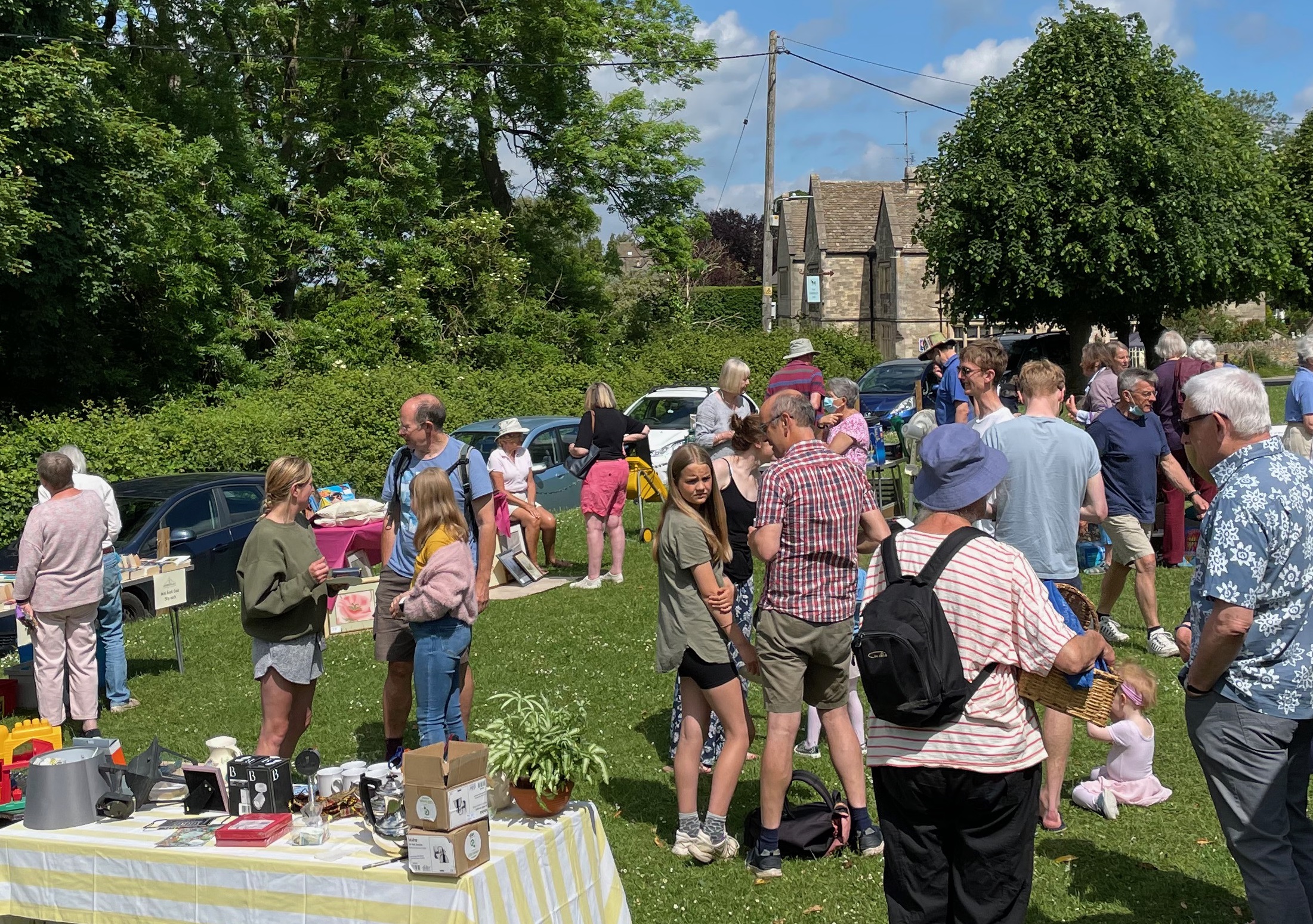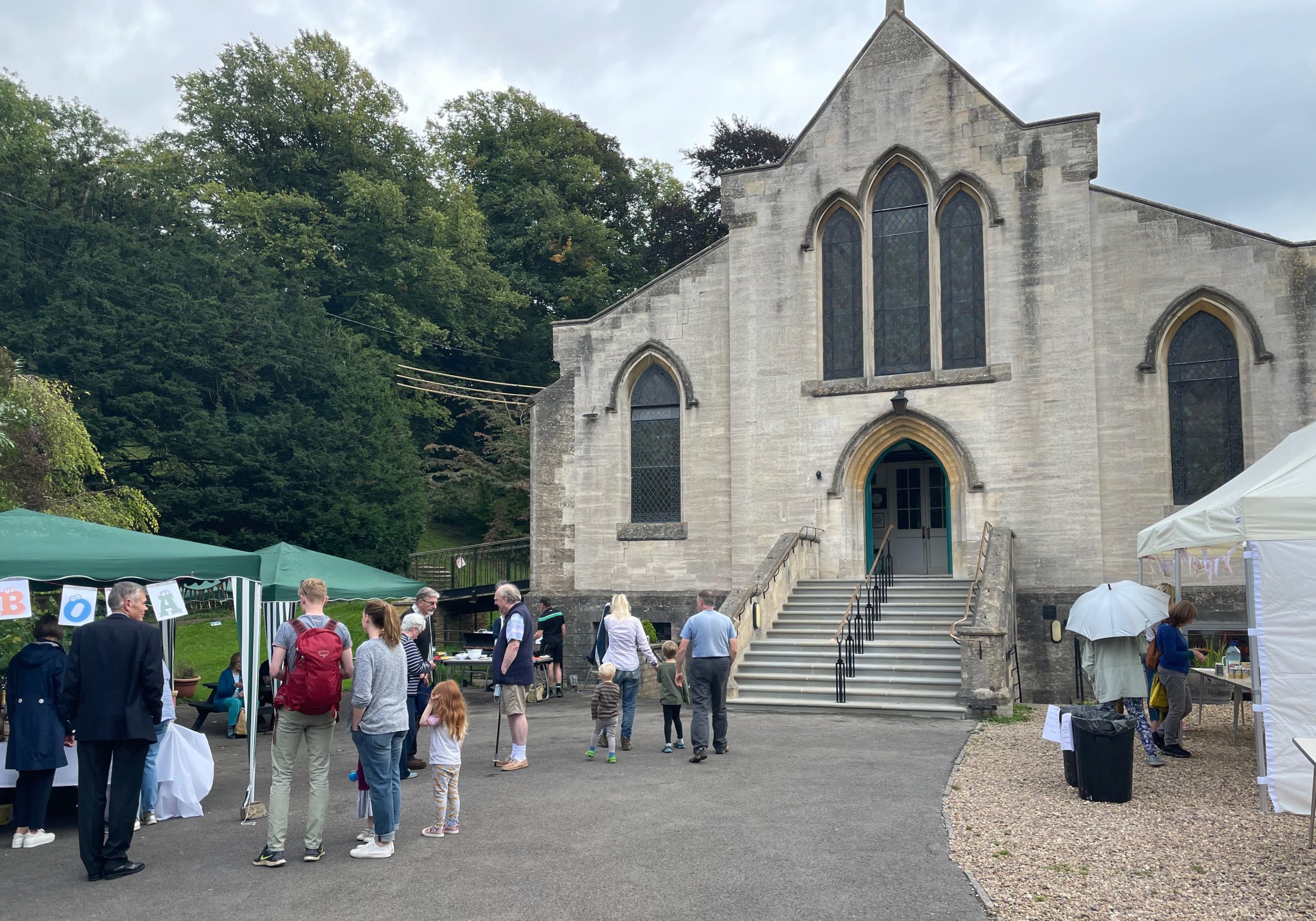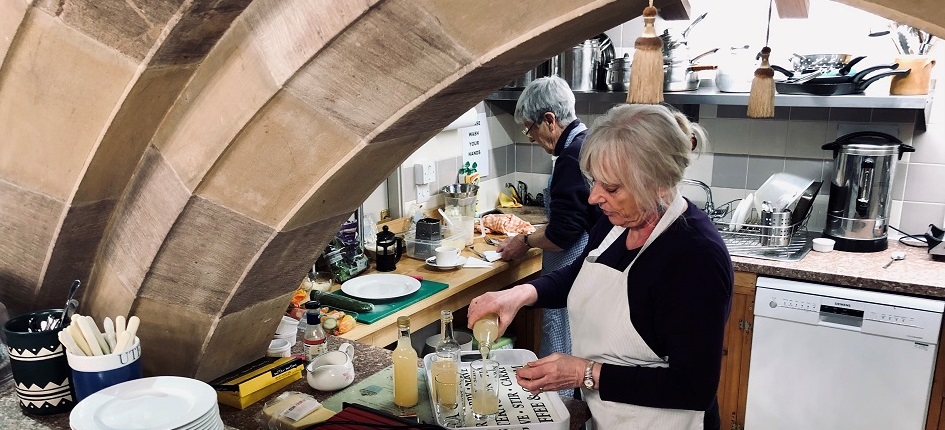Developing a shop, cafe & postal service within Amberley’s church and at the heart of its community
Plunkett’s Head of Policy & Communications, Chris Cowcher met Neil Truphet, the former chair of the Amberley Shop on the Common project – a community shop setting-up in the nave of its local church. As the group enter the next phase of their project Neil has moved from chairing meetings to project managing the ‘build phase’ and he highlights their work and experiences so far.
The group has been supported for free by Plunkett advisers and received a grant of £5,000 to support the development phase thanks to the funding provided by Benefact Trust.

The closure of a shop and post office can often be a motivating factor for many projects looking at community-ownership as a way of “saving” the shop. In Amberley, a hillside community just off Minchinhampton common, this was precisely the case. When the original shop closed in 2017, it became clear that alternative premises would be needed and so a small group started to investigate the possibility of founding a community shop, post office and cafe .
The generous offer from the landlord of the Black Horse pub to establish a shop in an outbuilding unfortunately stalled due to lease and parking issues and the search continued for alternatives; including a small village hall, private dwellings and even a log cabin. In the end the local church stepped forward with an offer to house the facility behind the nave of Holy Trinity, Amberley. This clearly ticked the most boxes – it is a great space, it is in the centre of the village and is accessible for everyone.
Project ambitions
Aware of the Church of England’s policy to encourage broader use of church buildings for all, the idea that a community business could be located within the local church quickly gained support within the village both among the church community and non-church goers, with support at the highest level within the diocese of Gloucester. A key aspiration is to create “more than a shop”. The steering group wanted to create a more inclusive community, and help those not able to get out much to have access to a social hub in the centre of the village. Their ambition is to create a café and a retail space in the nave of the church providing good quality local produce, services and opportunities to all interest and age groups.
Local engagement
Community consultation has been important throughout and involving all residents, of every age has been a priority for the steering group. Neil spoke about the work his wife, Alison, has been doing with the local school: “She’s had them thinking of names for the café, and next we’re going to have a blind tasting of ice cream – so the kids decide what we stock.” This multi-generational approach means that this project is very much looking to the future.
Making any kind of changes to a church, a beautiful and historic building, is a sensitive matter and some people had concerns. It was therefore important to listen to these concerns and to find ways to accommodate them. It is pleasing now to find an overwhelming level of support for the project and an acceptance that the longer term community benefit is greater than the short term disruption.
Local consultation has also been critical to creating employment opportunities for young people at the weekends. Amberley is a car journey (there are no buses) away from nearby towns, where most young people would likely seek employment. Helping to create jobs in the community provides an opportunity to work or volunteer locally and contribute positively to community life.
The challenges
 Fundraising is probably the greatest challenge for any community project, and Neil and his team are grateful to the support and guidance provided by the Plunkett team. Having gained legal advice on registering as a Community Benefit Society, the group now has 227 members and share capital of £72,230. Plunkett has also helped identify other sources of funding who have helped the shop towards their target.
Fundraising is probably the greatest challenge for any community project, and Neil and his team are grateful to the support and guidance provided by the Plunkett team. Having gained legal advice on registering as a Community Benefit Society, the group now has 227 members and share capital of £72,230. Plunkett has also helped identify other sources of funding who have helped the shop towards their target.
Carrying out work within a church is not without its challenges. Quite rightly the diocese need to preserve the integrity of church buildings as they are an important part of the church’s heritage. This all takes time, and certainly adds cost to a project such as this.
As for other challenges, Neil has always worried that when things move slowly ‘mission fatigue’ might spread among the management committee – particularly when the time to reach opening point seems to be so far off. Keeping a committed set of volunteers engaged, working together to achieve something for the community is hard work but also very rewarding. When the shop and café finally open later in 2022 – it will be so much easier to make sense of the sheer amount of effort they have put in.
It’s not just project progress that can be challenging however, the withdrawal of a permanent post office in the village has led to a rethink of the proposed facility. The team decided to run with a straight forward daily postal collection from the store, the sale of stamps, and the facilities to prepare parcels for posting. This is working well in many other community shops and so the management team are running with this idea now.
Wider community benefit
One of the bigger challenges for the project has been to manage the build costs,. The project has come at a time when demand for builders and contractors is in high demand, and material costs have been escalating at an alarming rate. This has meant that the costs that were being quoted were not manageable. The group decided to break the build down to its constituent parts, and project manage (via Neil) the work themselves. Neil emphasised the importance of working with good consultants especially a quantity surveyor who can assist with cost management.
Not only has this lowered the total cost and made the build phases more manageable it has had wider economic value, through working with an array of local suppliers and contractors, who are also contributing in-kind and discounted rates to the group too. The ripple effect of impact will also likely lead to more local custom longer-term, through word of mouth promotion via the contractors.
Even through the recent development phase, Neil has been delighted with the level of community engagement and the way that people have worked together to achieve a common goal.
Ultimately the group want to create an income stream to invest in their community. The longer term ambition for the project is to establish a secondary local trust, where profits can be gifted to and then distributed for wider community impact.
aaaa






